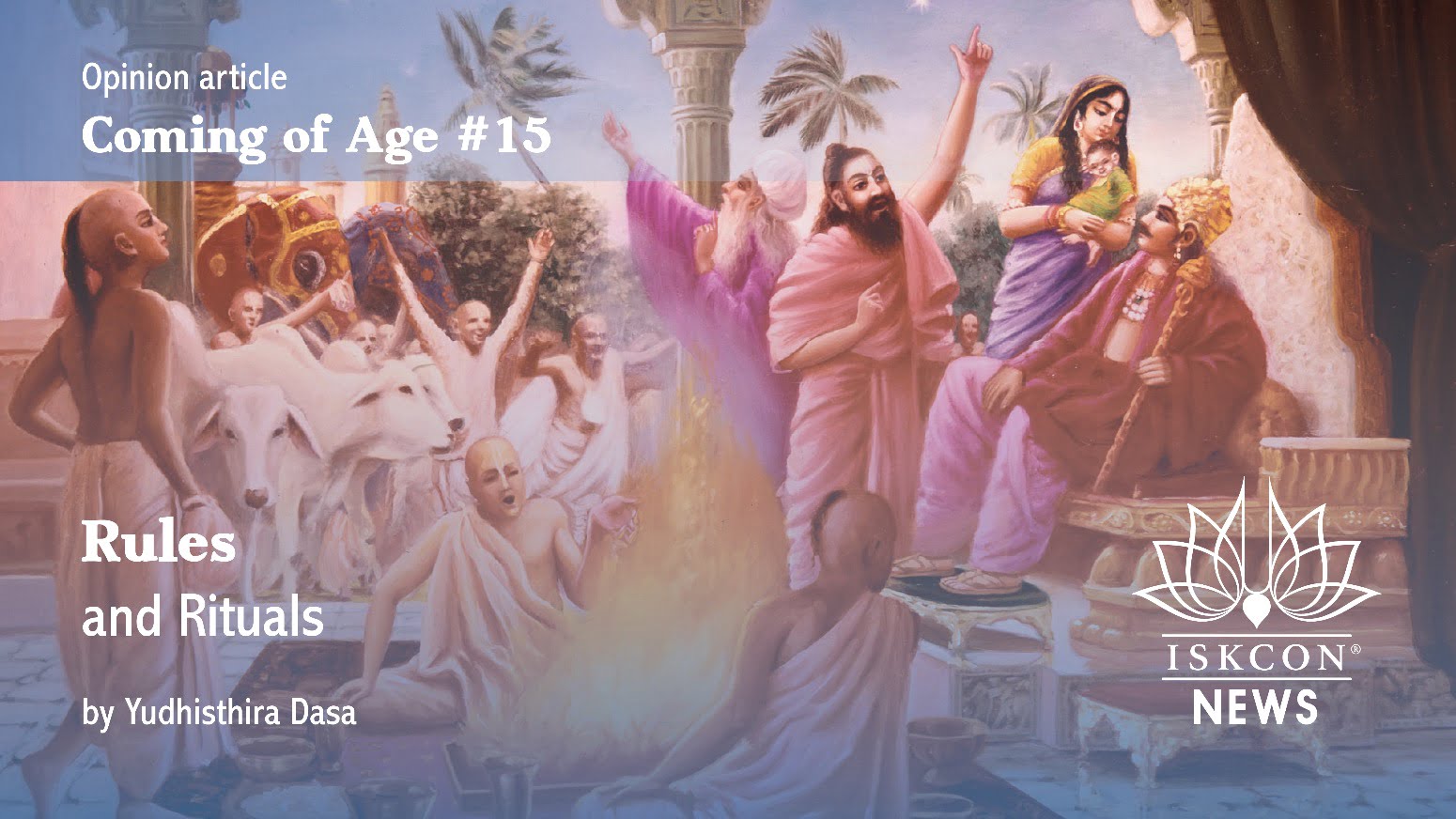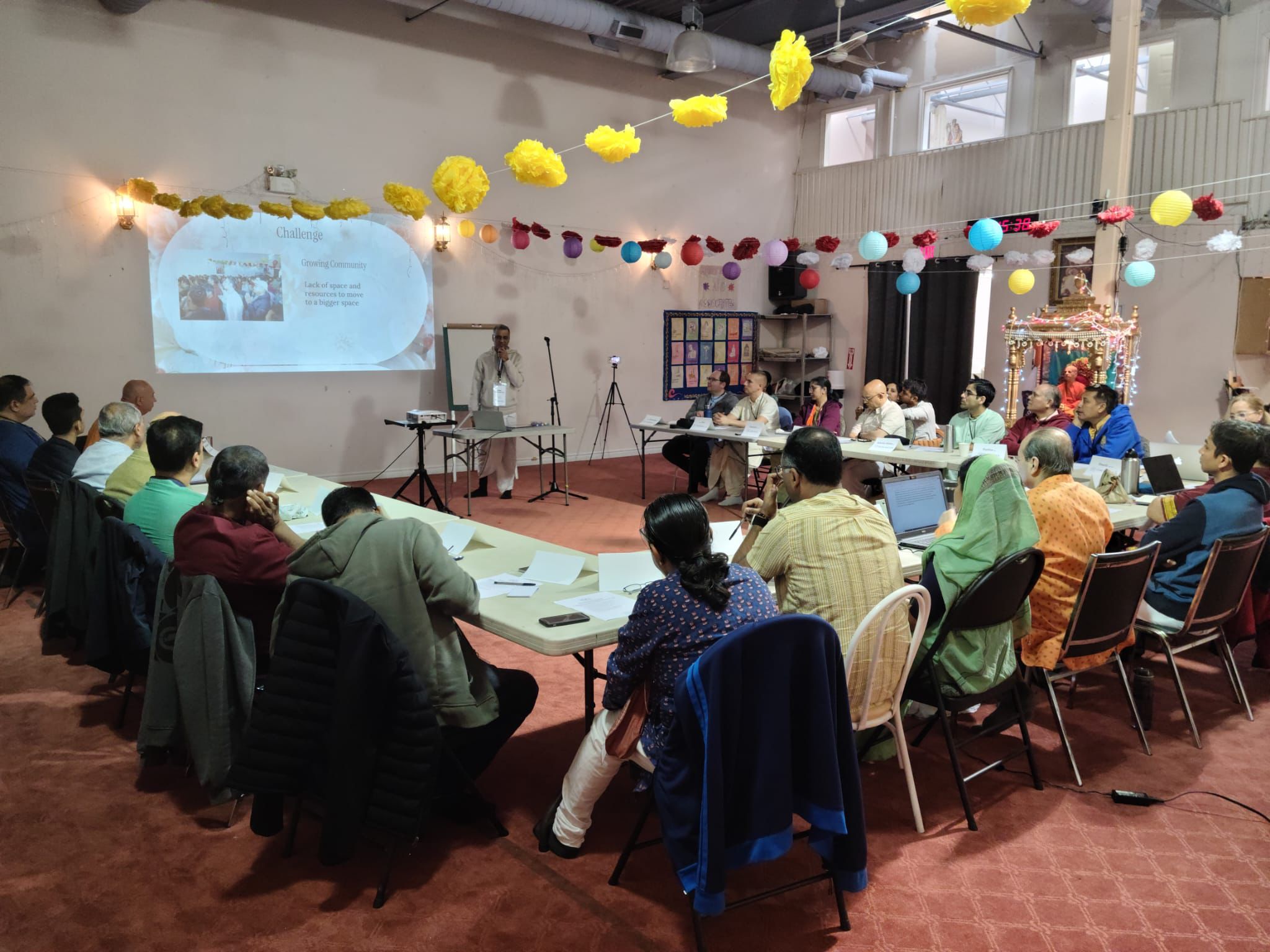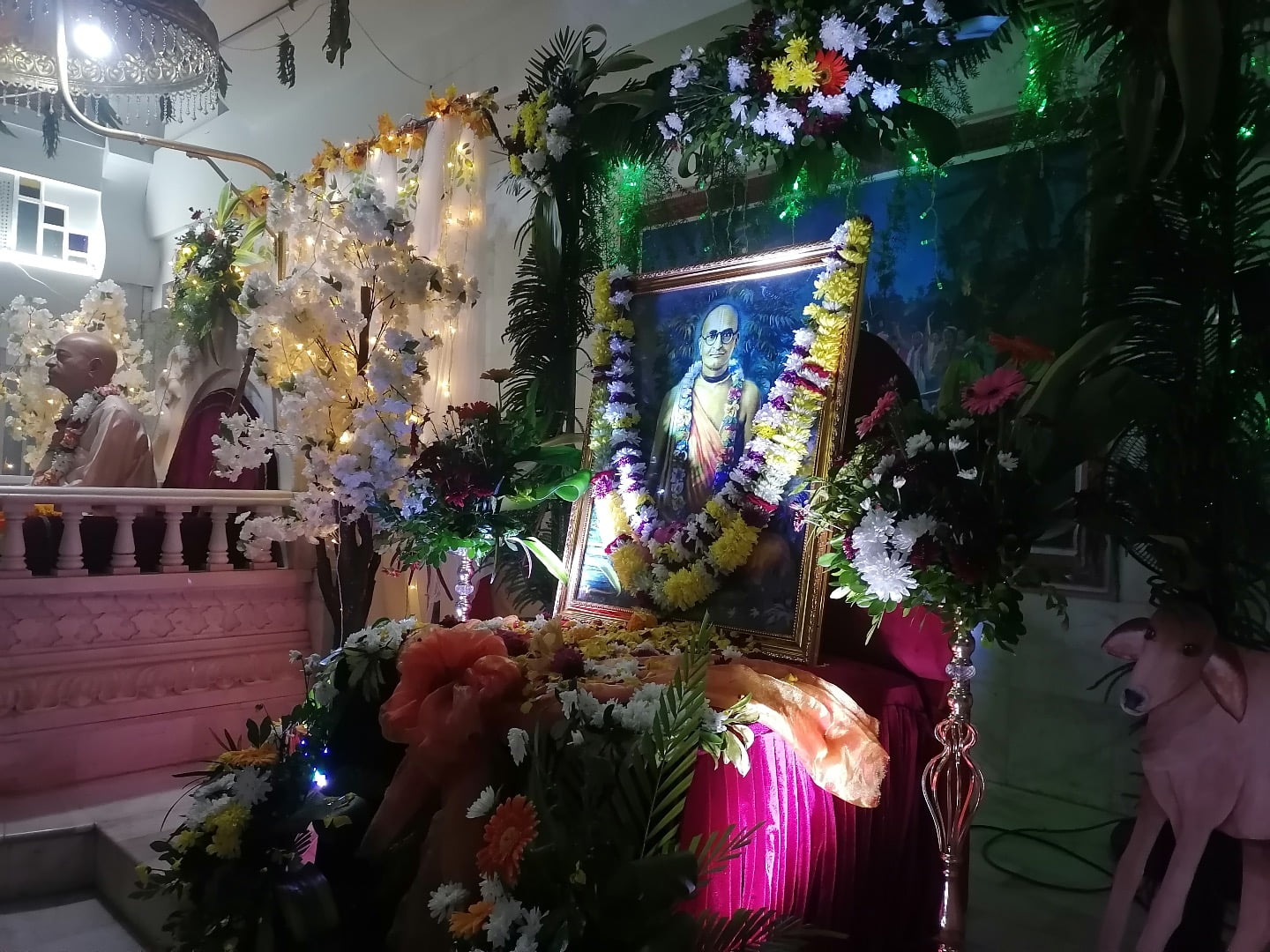BBT Statement on Annotating Srila Prabhupada’s Books
By BBT Trustees | Jul 02, 2008

The ISKCON Governing Body Commission has recommended to the BBT trustees that we insert endnotes or appendices into Srila Prabhupada’s books to explain statements Srila Prabhupada makes in Srimad-Bhagavatam 4.25.41, 4.25.42, and 4.26.26 concerning a woman’s attitude towards the aggressive advances of a man and towards a man who is “expert at rape.” The GBC has also recommended that the endnotes or appendices explain “other such statements.”
The BBT directors, at their annual meeting in June of 2008, considered these recommendations and decided to turn them down.
The directors have in fact discussed the relevant issues at length during several BBT meetings over the past few years. We have listened to opinions from concerned devotees and nondevotees. And additionally we have sought and received written advice on these issues from a selection of senior devotees, both male and female.
The directors have considered several suggested approaches to the issues, including deleting or revising the controversial passages, adding footnotes, adding appendices, publishing free-standing explanatory inserts, publishing separate books of commentary, and doing nothing at all.
As a result of our deliberations, we decided that the best approach would be to set up a site on the web where readers can go to get a better understanding of statements from Srila Prabhupada’s books that may be controversial, contrary to prevailing social norms, or otherwise difficult to comprehend or digest.
As we reprint Srila Prabhupada’s books, we plan to include on the copyright page a brief note directing readers to that site for guidance on such matters. This web site was already in development long before the meeting at which the GBC passed their resolution.
Addressing these issues on a website offers the following advantages, among others:
* It allows us to include explanations from several different viewpoints, not just one.
* It gives the authors space to write at whatever length they feel they need.
* It keeps Srila Prabhupada’s books free from editorial intrusions.
* It avoids needlessly highlighting statements that many readers may not find disturbing.
* It spares us from having to publish “official explanations” for statements about which even Srila Prabhupada’s leading disciples and followers have divided opinions.
* It saves us from the danger of publishing in Srila Prabhupada’s books an explanation with which he himself might disagree.
* It keeps us from embarking on the treacherous path of “explaining” more and more of Srila Prabhupada’s controversial or potentially controversial statements.
We foresee that Srila Prabhupada’s followers will eventually write many books of commentary to directly explain and elaborate upon the teachings found in his books, and we welcome this. We see the website as an initial step in that direction.
In this letter we also wish to respond to the specifics of the GBC’s recommendation.
The GBC’s resolution gives three reasons for their recommendation. Two are these:
* “Some of Srila Prabhupada’s books contain sentences [like those cited] which when taken in isolation may be considered derogatory to and offensive against women.”
* “Some people who read such statements may consider them to be derogatory or offensive, may misunderstand what Srila Prabhupada actually means, and may not want to further read those books, notwithstanding the many other beneficial statements in them.”
Regarding these two reasons, we recognize that Srila Prabhupada’s books sometimes make statements that some readers may consider offensive—offensive to women, to science and scientists, to democratic ideals, to other Gaudiya Vaisnavas, to scholarship and scholars, to homosexuals, to pacifists, humanitarians and philanthropists, to people of various nations or races, to followers of various spiritual or supposedly spiritual paths, to individuals widely revered as saints or incarnations of God, and much more. And we recognize that such statements may discourage some readers from reading further.
Nonetheless, we think that adding notes or appendices to explain what Srila Prabhupada intended would be unwise, and potentially disastrous, especially if the purpose of the explanation were to soften the impact of Srila Prabhupada’s words, to explain that he “didn’t really mean” what he appears to have said—that is, not just to explain but to “explain away.”
The GBC’s remaining reason is this: “Some ISKCON devotees may have used these statements out of context as an excuse to offend, neglect and abuse women.”
We agree that this is true. But we believe that providing guidance and instruction on such matters is the responsibility of the GBC and ISKCON’s leaders, not the BBT or its editors. And we believe that Srila Prabhupada’s books are the wrong place for his followers to insert corrective guidance on morals, ethics, or proper attitudes and behavior. We think that annotating Srila Prabhupada’s books to keep ISKCON devotees from going off track is simply a bad idea.
We are concerned, also, that the GBC has asked us to insert endnotes or appendices to explain not only the statements they quoted but also “other such statements as determined by the BBT.” That is not a road we think it wise for us to set off on. Once we get started, where does it end?
In conclusion: We do not intend to add anything to Srila Prabhupada’s books, or subtract anything, or change anything Srila Prabhupada says, to make his controversial or potentially controversial statements more acceptable to readers or less vulnerable to misuse by ISKCON devotees. We believe that this would be unwise, contrary to our prescribed duties, and potentially disastrous. We also strongly urge whoever our successors may be to preserve Srila Prabhupada’s books intact and reject all proposals, however well intentioned, for softening the impact of his words.














